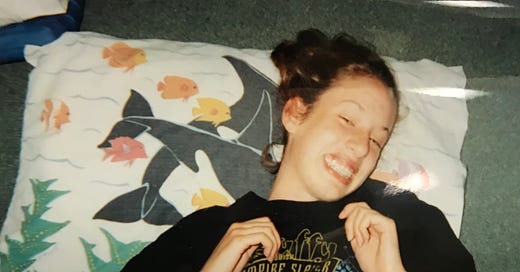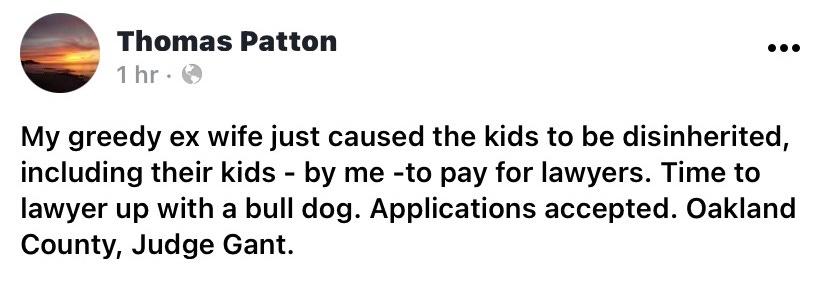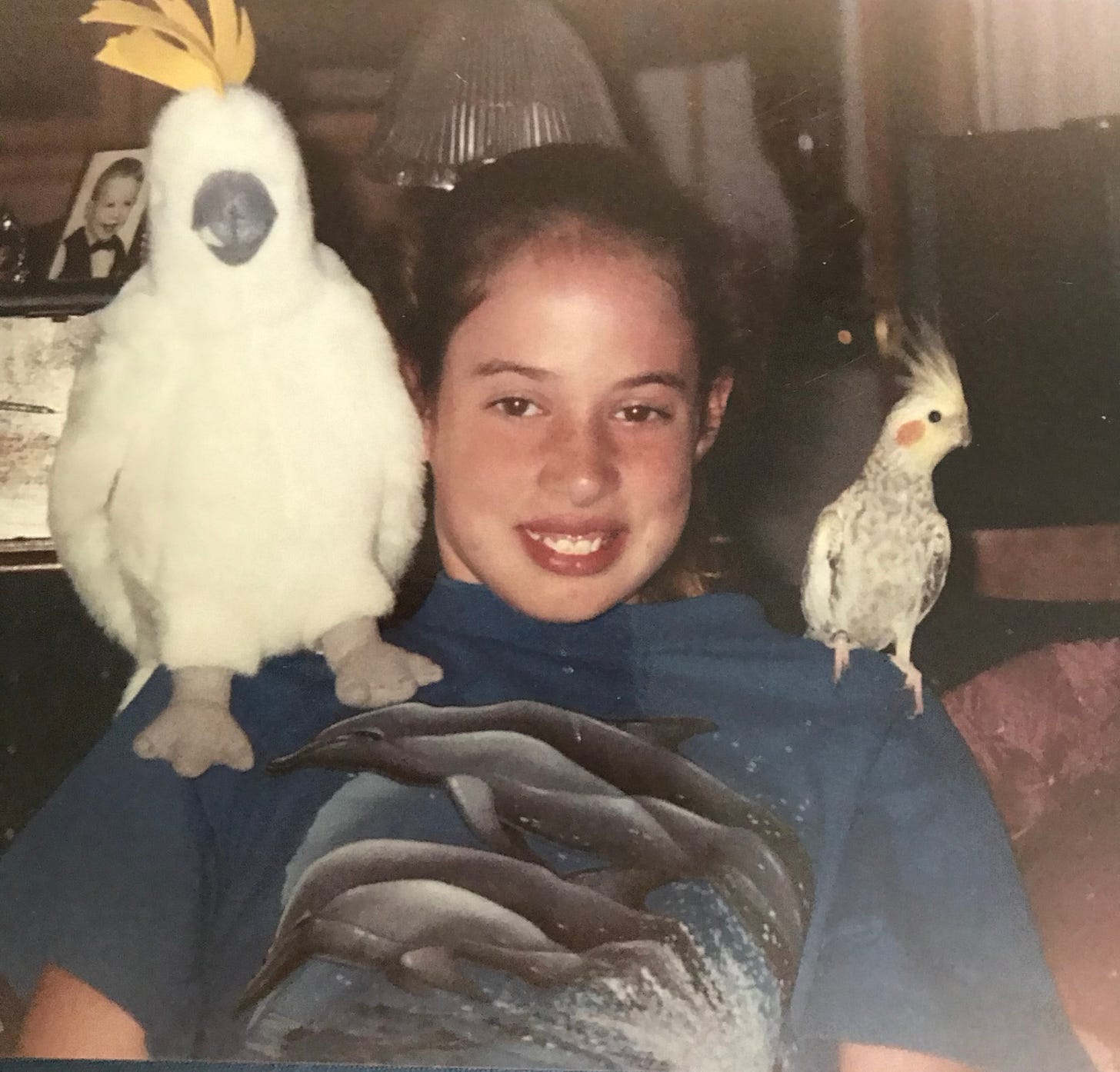Musings from an Estranged Daughter
Out of those who are estranged from a family member, 80% felt there had been some positive outcomes of their experiences of estrangement, such as greater feelings of freedom and independence.
I did not cry on Father’s Day this year.
In fact, I don’t cry nearly as much as I used to. It feels nice.
I am historically not a crier, so when I do cry, it feels foreign and unnatural, even though I know crying is as natural as eating, sleeping and shitting. I used to find pride in this personality trait but it was the arbitrary ‘watch me carry all the chairs during class cleanup’ kind of pride.
I cried often because I had a confusing grief to process. I was mourning the loss of my still-alive father. There was no ceremony, no well-intentioned outreach, no flowers. I learned what I was going through is called ‘disenfranchised grief,’ a type of grief that is not openly acknowledged socially. It’s a very lonely place.
Family estrangement isn’t all tears and mourning, though. My life feels lighter because I no longer have uncommunicated expectations. I save money on presents, have more availability on my calendar and am no longer manipulated with the silent treatment. It’s not bad.
Studies validate me, too.
Out of those who are estranged from a family member, 80% felt there had been some positive outcomes of their experiences of estrangement, such as greater feelings of freedom and independence. I don’t like that I relish my peace because it complicates an already complicated situation.
My decision to go no-contact from my dad was validated on a weekend morning two years ago. I started getting texts, all sharing the same information: my dad posted about my parents’ court dispute on Facebook. In it, he publicly insulted my mother and disinherited his children.
He posted his outburst twice; in his feed and the subdivision Facebook group. For background, my childhood neighborhood has very low turnover, so neighbors and family friends of more than 30 years saw his tantrum in the group.
“My mom asked if you were OK,” one friend said.
“My mom texted me about Tom. Is everything OK?” said another.
The word was spreading. People were finally learning what I knew all along.
I appreciated each concern-heavy text but assured everyone that I was fine, good even. His childish actions did not hurt me because they proved that I was right—that I made the best decision.
Hiding behind a title
My therapist taught me that our culture puts too much weight on titles—so much so that titles are used to excuse poor behavior, even abuse.
“Respect your elders.”
“It’s a child’s job to call their parent.”
“Because I’m the parent and I say.”
We wield titles for gain, to manipulate situations and win arguments. We hide behind titles to avoid accountability. My therapist helped me realize I do not have to tolerate pain and disrespect no matter another person’s title. Even if that person is the man who raised me.
Roughly 67 million Americans are estranged from their families, myself included. Any estranged child will tell you it is not a decision made lightly. Pushing a parent away goes against all our instincts, at least that’s how it feels.
In child-parent estrangement, one trend has been consistent over the past 30 years: fathers are most likely to get the boot from their kids. It’s a trend that mirrors my lived experience.
In 1997, a study found 27% of adult children had cut ties with their father, while only 7% cut ties with their mother.
Fast forward nearly 25 years later and studies still show a large discrepancy between moms and dads, with adults four times more likely to be estranged from their fathers than mothers.
One study from 2022 discovered divorce is a key contributor. My reasons for becoming estranged from my father are complicated and varied, however, they all stem from my parents’ divorce in 2010.
“Further, parental divorce is a predictor of less frequent contact and higher conflict levels between adult children and fathers relative to mothers and is suggestive of more paternal, relative to maternal, estrangement,” the study reads.
I guess I’m not the only member of the Fathers Behaving Badly Club.
You’ll get priority when you give us grandbabies
A common misconception is adult children handle their parents’ divorce better.
While I do not know what it’s like to be a child during a divorce, I know what it’s like to be an adult child during a divorce, and nothing about that is easy. Something about divorce I don’t think many parents understand is the family is all their children know. My parents knew what life was like before our family. My brother and I, on the other hand, did not know a life without our four-person family.
During this time I just kept losing things. Two people I admired lost their lives to suicide and my college friend group abandoned me. (We’ll talk about that in a separate post). My parents’ divorce was the cherry on top of my emotional trauma sundae. I felt like I was in a freefall with no trace of a net.
This era also saw my dad acquainting himself with a new family. He found someone better, with better kids and a stronger focus on money and status. He upgraded his kids from Goodwill to Ralph Lauren and never looked back.
Meanwhile, I’ve been trapped in a stereotype for the last 15 years. Someone else is living like me, sleeping in my old bedroom, enjoying the lake I played in as a child and taking part in my traditions. All the things I thought to be true and uncompromising have been compromised. It’s unsettling in a way I can’t quite describe.
My father has leaned into his new family, providing them with vacations and opportunities he’d never offer us. My brother and I have confronted this favoritism repeatedly over a decade and were met with denial and hostility each time.
I remember having a one-on-one moment with my father that gutted me. Being the family peacekeeper, I felt I could reach him better when it was just us. I gently brought up how his favoritism made me feel.
“You’ll get priority when you give us grandbabies” was his defense.
Ouch.
He knew I didn’t want children and that I wouldn’t ‘give’ him grandbabies. It was his way of saying he’d never prioritize me without directly saying it.
My family role has always been the scapegoat—the one who is told ‘no’ and whose choices are criticized. With this personal experience informing me, I knew I’d never be the favorite, would never be a priority. I just had no idea how much it would hurt to hear it out loud.
A new celebration
I am learning to enjoy Father’s Day now.
Being a proud aunt, I acknowledge my brother and sister-in-law on Mother’s and Father’s Days. I understand I have the privilege to experience only the fun parts that come with childhood while they get the whole package. My nephew would not be in my life without them, so I show gratitude when I can with gifts and quality time.
This year, we celebrated my brother at his favorite brewery, just a block from my home. The day’s beginning was a little tough, being an estranged daughter. It always feels like a knife when I think about my dad celebrating with the kids he actually wanted.
Halfway through the day, though, a switch flipped.
My brother has actively worked to be our father’s opposite. He is a dad who regularly cherishes his child. I’ve never heard my brother complain about my nephew in the three years since he became a dad. If he has, there is a lightness to it.
By being in love with fatherhood, my brother has created an energy that makes family time much sweeter. That energy was palpable when we recently gathered this past weekend to celebrate a very deserving father. It helped lift my spirits and infuse gratitude into my day.
You don’t have to celebrate your dad to appreciate fatherhood. That was the lesson I learned this year. Even though I lost so much by becoming estranged, I hold tighter to the small family circle I do have, gaining me more perspective and more love.
I live with chronic migraine, which affects how much work I can take on. On average, I lose one workweek a month to migraine attacks. Not a Fit for Our Publication is my way to raise funds to manage my disease while offering something in return. You can help me out by subscribing to Not a Fit for Our Publication, sharing the website, sharing a free blog post and gifting a subscription.









I am so, so very sorry you’ve had to go through this. It breaks my heart and I wish it could be different. Please know you are deeply loved by me and your brother, along with Connell, who adores you, Dave and Tessa!
We have a great family unit! 😘🩷
Very well written.♥️